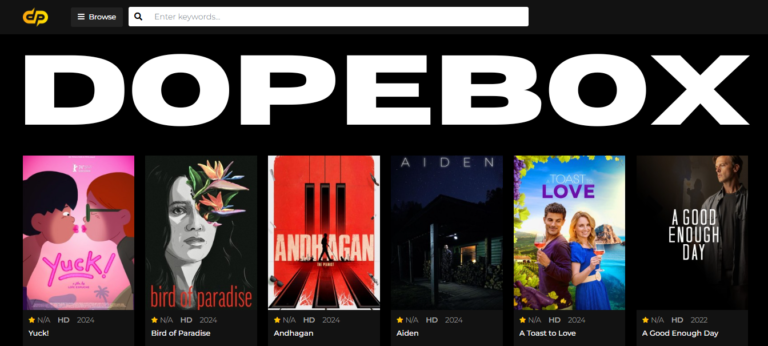
how to become a virtual speaker in colorado
Virtual speaking is no longer just a trend; it’s the future of public communication. In Colorado, known for its innovative culture and thriving industries, the virtual speaking profession is opening doors for countless professionals. Whether you’re a seasoned expert or just starting, learning how to become a virtual speaker in Colorado can set you on a rewarding career path.
This comprehensive guide will walk you through everything you need to know how to become a virtual speaker in Colorado, from identifying your niche to mastering the art of online presentations.
Understanding the Role of a Virtual Speaker
What is Virtual Speaking?
Virtual speaking involves delivering speeches, presentations, or workshops through online platforms like Zoom, Microsoft Teams, or webinars. Unlike traditional speaking, it relies heavily on technology to connect with audiences from around the world, removing the limitations of physical boundaries.
In essence, virtual speaking democratizes the art of communication, making it accessible to a wider audience while providing flexibility to speakers.
Key Skills Every Virtual Speaker Needs
To excel as a virtual speaker, you need a mix of soft and technical skills:
- Communication Skills: Clear, concise, and engaging speech is non-negotiable.
- Technical Proficiency: Mastery of virtual tools and platforms ensures seamless delivery.
- Adaptability: Being able to pivot quickly during technical or audience-related challenges.
- Storytelling: Crafting relatable narratives that keep your audience hooked.
- Emotional Intelligence: Understanding your audience’s needs and responding effectively.
Why Choose Colorado for Virtual Speaking?
Unique Opportunities in Colorado
Colorado’s industries, including technology, renewable energy, and outdoor tourism, create unique opportunities for virtual speakers. You could find yourself speaking at tech summits, environmental webinars, or motivational workshops tailored to this vibrant state.
Additionally, Colorado’s focus on sustainability and innovation makes it a hub for thought leadership. This aligns perfectly with the values of many virtual speakers aiming to inspire change.
Networking and Business Growth
Colorado is home to a strong professional network, from coworking spaces in Denver to entrepreneurial communities in Boulder. Virtual speaking in this environment allows you to connect with key industry leaders and expand your professional reach. These connections often lead to collaborations, referrals, and opportunities that wouldn’t be possible in more traditional settings.
Steps how to become a virtual speaker in Colorado
Identifying Your Niche
Your niche is your expertise area—the unique subject matter you’re passionate about. Whether it’s leadership coaching, health and wellness, or digital marketing, your niche will define your brand.
- How to Discover It: Reflect on your experiences, passions, and the topics you could talk about for hours.
- Research Your Audience: Look into Colorado’s audience demographics to see what resonates. For example, outdoor enthusiasts may enjoy talks on fitness or sustainability.
Building a Personal Brand
Your brand is your online identity. It’s what people think of when they hear your name.
- Develop a Strong Online Presence: Create a professional website showcasing your portfolio, testimonials, and areas of expertise.
- Be Active on Social Media: Share insights, short clips of your talks, and industry updates to engage your audience.
- Write Blogs or E-books: Establish yourself as a thought leader by creating valuable content around your niche.
Setting Up Your Home Studio
A professional setup can make or break your virtual speaking career.
- Essentials You Need:
- A high-quality microphone for clear audio.
- A reliable HD webcam.
- Ring lights or softbox lighting for proper illumination.
- Noise-canceling headphones to avoid distractions.
- Stable internet with high upload speed.
- Pro Tips: Test your equipment before every session and consider soundproofing your room for better audio quality.
Mastering Virtual Presentation Skills
Virtual speaking isn’t just about delivering a speech; it’s about engaging an audience that could be multitasking or distracted.
- Use interactive tools like polls, Q&A sessions, or live chat to involve your audience.
- Incorporate storytelling and real-life examples to make your presentations relatable.
- Practice speaking with energy and varying your tone to keep the audience engaged.
Finding Speaking Opportunities in Colorado
Virtual Events and Conferences
Colorado is known for hosting a wide range of events that are now moving online. From tech expos to wellness summits, these events offer platforms for virtual speakers.
- How to Find Them: Search local event listings on Eventbrite, Meetup, or LinkedIn.
- Pitching Yourself: Craft a compelling pitch highlighting what you bring to the table and why you’re the perfect fit for the event.
Leveraging Social Media and Online Platforms
Platforms like LinkedIn and Instagram can amplify your reach.
- Join relevant groups and communities to network.
- Post short videos or snippets of your talks to showcase your style and expertise.
- Collaborate with influencers or organizations to gain visibility.
Challenges in Virtual Speaking and How to Overcome Them
Tech-Related Hiccups
Even the best speakers face tech issues.
- Always have a backup plan, like an extra device or alternate internet connection.
- Practice using your platform’s features, like screen sharing and breakout rooms, to avoid surprises.
Maintaining Audience Engagement Online
It’s easy to lose your audience’s attention in a virtual setting.
- Use visual aids like slides or videos to break up monotony.
- Address your audience by name when possible to create a personal connection.
Benefits of Being a Virtual Speaker
Flexibility and Accessibility
Virtual speaking lets you work from anywhere, which is perfect if you love Colorado’s outdoor lifestyle. Whether you’re in the mountains or in the city, you can deliver impactful sessions without being tied to a specific location.
Expanding Your Audience Beyond Colorado
With virtual speaking, you’re not limited to local events. You can connect with audiences worldwide, expanding your reach and professional network significantly.
Resources to Help You Get Started
Online Training Programs
Platforms like Udemy, Coursera, and Toastmasters International offer courses to sharpen your virtual speaking skills.
Networking Groups and Communities in Colorado
Join groups like Colorado Virtual Networking or Denver Tech Talks to find like-minded professionals and uncover opportunities.
Tips for Long-Term Success as a Virtual Speaker
Staying Updated with Trends
The virtual world is constantly evolving. Stay ahead by learning about the latest tools, audience preferences, and industry trends.
Consistently Improving Your Craft
Seek feedback from your audience or peers after each session. Use this feedback to refine your delivery, content, and engagement techniques.
Conclusion
Embarking on the journey how to become a virtual speaker in Colorado is both exciting and rewarding. It’s more than just speaking to an audience—it’s about creating meaningful connections, sharing valuable insights, and leaving a lasting impact, all from the comfort of your chosen space.
From identifying your niche and building your personal brand to mastering the art of virtual presentations, each step is an opportunity to grow personally and professionally. While challenges like technical issues and audience engagement can arise, the rewards far outweigh the hurdles. Virtual speaking offers unparalleled flexibility, access to a global audience, and the chance to shape conversations in your field of expertise.
FAQs About how to become a virtual speaker in Colorado
- What are the first steps to becoming a virtual speaker in Colorado?
Identify your niche, build a strong personal brand, and invest in the right equipment. - Do I need professional equipment to start virtual speaking?
You don’t need high-end gear initially, but having good-quality essentials like a microphone and webcam can make a difference. - How can I find my niche in virtual speaking?
Reflect on your expertise, passions, and what topics resonate with audiences in your target market. - What platforms are best for promoting myself as a virtual speaker?
LinkedIn, Instagram, and your own professional website are excellent platforms for showcasing your skills. - How do I keep my virtual audience engaged?
Use interactive elements like polls, live Q&A sessions, and storytelling to keep your audience involved.






